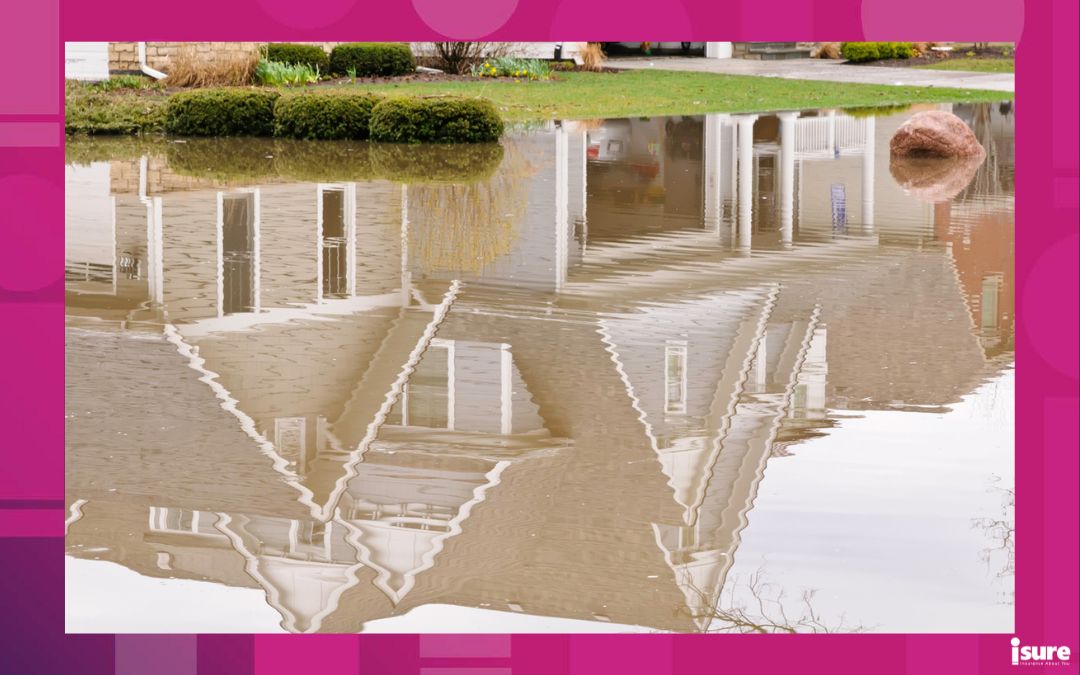Different types of insurance policies can vary in the number of items they will and will not cover. When an insurance policy excludes something, it means you have no coverage for that particular item. If you make a claim for it, the claim will be denied. While there is likely a section in your homeowners’ insurance policy labeled “Exclusions,” other exclusions may appear anywhere in your policy. Insurers use home insurance exclusions to manage their risk and keep premiums affordable. Let’s examine common exclusions and how endorsements can help you get the coverage you need from your home policy.
What is an exclusion?
In insurance, exclusions serve as a way to clarify the coverages granted by the homeowners’ policy. Exclusions take coverage away from the Insuring Agreement of your policy. In addition, they serve to outline whatever is not covered under your insurance policy. Three categories help break it down more clearly:
- Excluded perils: Causes of a loss, like fire, water, hail, or theft.
- Excluded property: Coverage may apply to some types of property, but not others. For example, a home insurance policy may not cover jewelry.
- Excluded actions: Coverage will not be available for any loss if it was due to an intentional or fraudulent act.
A named perils policy covers all the perils it lists specifically and excludes all other perils. However, a comprehensive policy covers everything except what it lists as ‘excluded’.
Reasons insurers may have home insurance exclusions
Insurers use home insurance exclusions to manage their risk and keep premiums affordable. There are many examples of why your insurer might choose to exclude something from a policy:
- The risk is too high. Some things are excluded because the risk of loss is simply too great. Homes located on a known floodplain often have flood coverage excluded from their home insurance policies. Why? Because it’s near impossible to provide this coverage at an affordable premium.
- The loss is covered elsewhere. Nuclear activity is excluded from home insurance, for example. Home insurance policies exclude motor vehicles because auto insurance policies cover them instead.
- They can’t price the risk. As an example, policies exclude war, because there’s simply no way to estimate the potential losses from a war or any predictable timeframe in which one can happen.
- The loss is avoidable. Home insurance providers encourage customers to take reasonable steps to prevent losses. Wear and tear is excluded because homeowners are responsible for regular maintenance of their home.
Common home insurance exclusions
According to Financial Services Commission of Ontario (FSCO), home insurance exclusions are specific hazards or situations for which your insurance company will not provide coverage. Waiting until disaster strikes to find out what your homeowners insurance policy does not cover your claim is not the best approach. Take the time now to familiarize yourself with the home insurance exclusions outlined in your policy. Below are some of the potential causes of loss (also known as “perils”) for which most insurance companies will not provide coverage:
- Damage from wear and tear, rust, corrosion or gradual deterioration.
- Water damage caused by flood, underground water or water that enters through cracks in your foundation.
- Damage arising from the freezing of indoor plumbing.
Note: If you are away from home for more than four consecutive days over the normal heating months, you must drain the plumbing or arrange to have your home inspected on a daily basis by a competent individual to ensure that heat is maintained. If, however, freezing-related damage occurs despite such precautions, it might be covered.
- Damage to the exterior of your home as the result of freezing, melting/moving snow or ice and heaving frost.
- Damage caused by snow slide, landslide and other forms of earth movement (e.g., earthquakes). However, damage from a fire or explosion from earth movement may be covered.
- Existing damage isn’t usually covered if it existed before the policy was taken out.
- Intentional or criminal acts (fraudulent claims).
Other exclusions:
- Certain dog breeds: Dog bites comprise over one-third of home insurance liability claims. So, it may not be a surprise to learn that not every dog breed is covered by your typical home insurance policy. Breeds which are known for having aggressive tendencies or have been otherwise branded as ‘dangerous’ may be left out of a policy. Your isure broker will be able to determine whether or not your dog’s breed affects your insurance. However, this isn’t the case for all insurers!
- Losses due to war, including terrorism and nuclear risks.
- Governmental seizure or destruction of property.
- Illegally acquired property and losses or damage associated.
- Damage from contaminants or pollutants, unless the loss or damage results from the sudden and accidental bursting or overflowing of your home’s oil tank or pipes.
- If a power surge causes damage to an electronic device in your home and it’s a peril in the personal property or contents coverage of your homeowners insurance policy, you’ll most likely receive compensation to repair or replace the item. While they should be included in your fire coverage, you may find yourself uninsured if a fire is triggered by shoddy electrical work or outdated wiring.
- Home-based business liability: A homeowners’ policy protects your home and property from various types of damage. But there are some things your insurance won’t cover. This can include protection for your home business. Fortunately, most major insurers offer home-based business coverage.
- Renters: Most home insurance policies don’t cover damage or loss caused by renters staying in the home. They need to protect themselves and their belongings with their own renters’ or tenant insurance policy.
Home insurance endorsements (optional coverage)
A standard home insurance policy will ensure that you are covered for the insured perils listed in your policy. However, some disasters are not typically covered, meaning that you can face expensive repair or replacement costs yourself. For those events that are not covered in your standard policy, you may want to purchase extra coverage, also known as endorsements or riders.
Common endorsements include:
- Flood (overland water): Covers damage caused by bodies of water overflowing onto dry land. If you live in a flood plain, this coverage may not be available to purchase.
- Wind damage: Covers damage to the structure of the building, broken windows, damaged contents and cleaning up debris. Water damage from rain and hail may not be covered.
- Sewer back up coverage: Covers damage caused by backed up sewers, drains, toilets and showers. Sewer back up is not typically covered under standard policies.
- Scheduled personal articles: If you have valuable items, such as jewelry, electronics, fine art, collectibles, bikes or boats, you may need to purchase extra coverage to protect them fully. You need to provide current appraisals to the insurer in order to get the right amount of coverage.
- Equipment breakdown: Covers unforeseen breakdowns (not general wear and tear) in major pieces of equipment, like laundry and kitchen appliances, heating and air-conditioning systems, security systems and computers.
- Guaranteed Replacement Cost: Ensures that you receive the full amount needed to repair your home or replace contents, without any reduction for depreciation, to the limit insured. Most standard policies pay out an Actual Cash Value which is determined by subtracting the depreciation value from the Replacement Cost Value.
- Earthquake: Earthquakes are not included in most standard policies; however, if an earthquake causes a fire, the fire damage will be covered. An earthquake endorsement insures against earthquake damage, and may also entitle the homeowner to additional living expenses if they are unable to live in the home.
Umbrella insurance policy
Your home and auto insurance policies may not fully cover the costs of a lawsuit or claim against you. An umbrella insurance policy can cover expenses outside the limits of your other policies. Not all insurance companies offer umbrella policies, so speak to your isure broker to see if it’s an option you should consider.
While there are many reasons for home insurance exclusions, the ultimate goal is to keep premiums low for clients. Home insurance exclusions are one of the main tools insurers have to ensure they’re using their customers’ premiums responsibly. Understanding your home insurance policy is essential to ensure that your premium covers what you expect it to. Being clear about your policy is vital so that you can avoid any coverage gaps. Knowing the exclusions of your home insurance policy can help you to identify where gaps exist. When in doubt, your isure representative can review your policy’s exclusions with you and advise which endorsements can help give you the coverage you need for your home.




